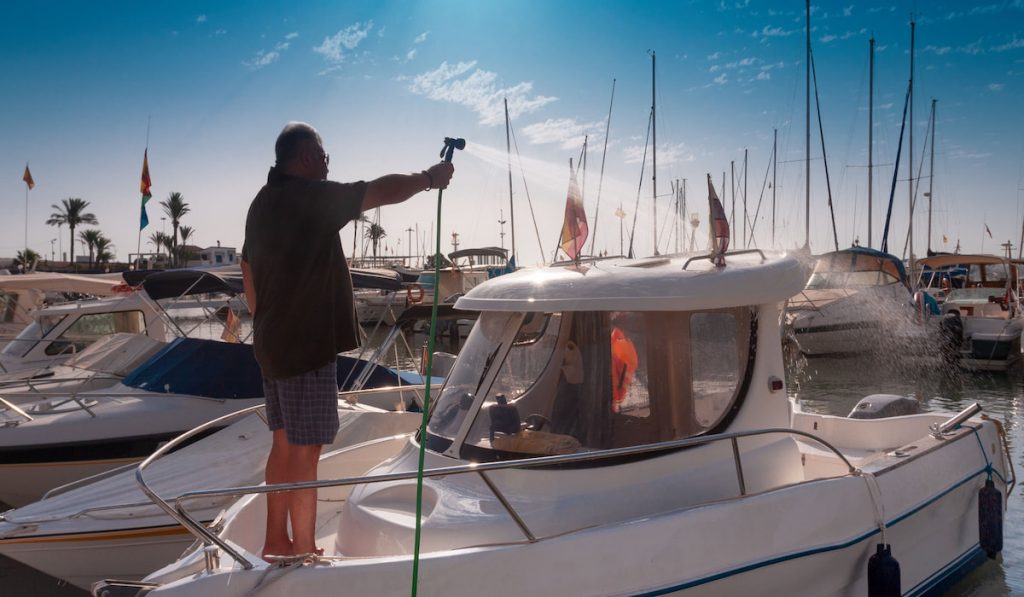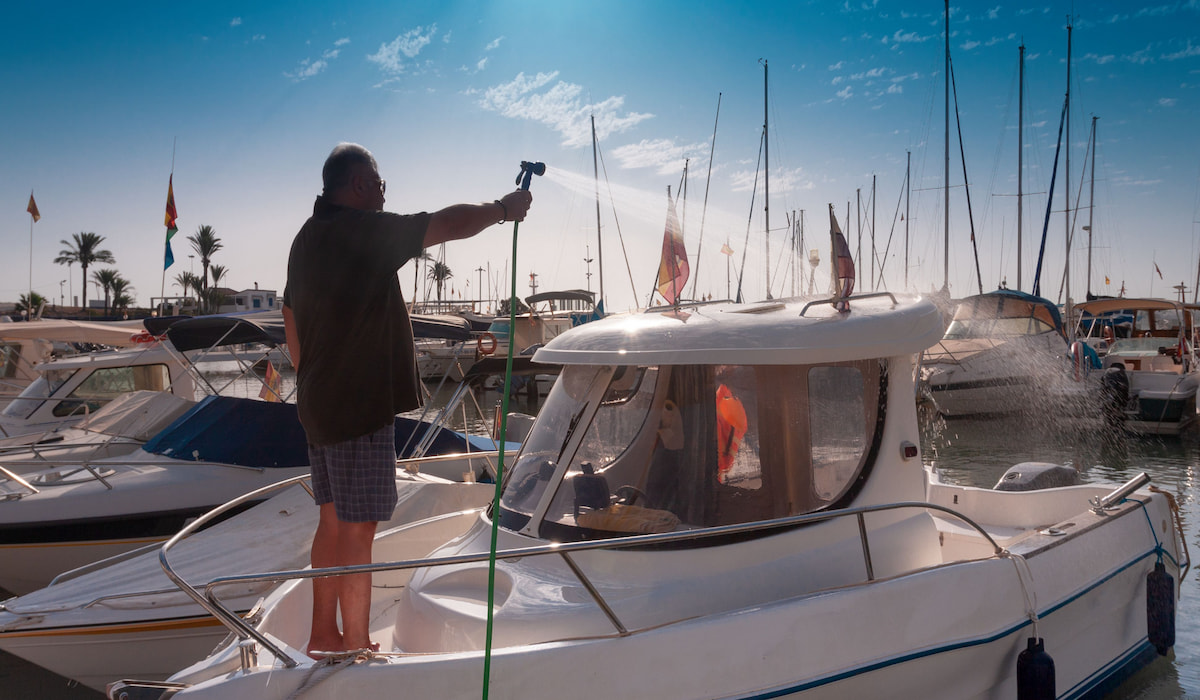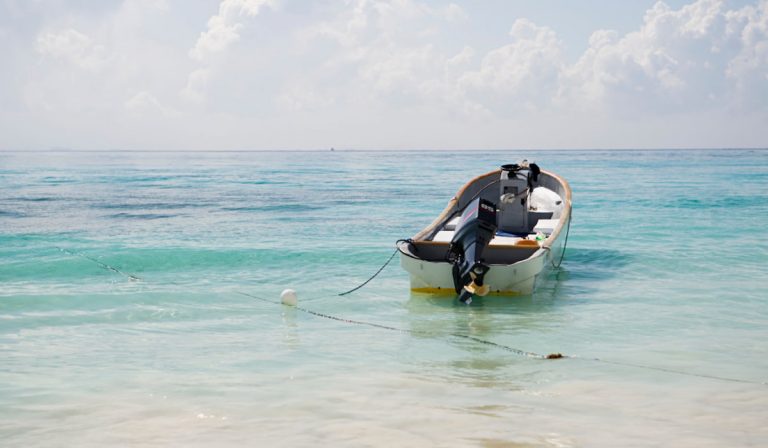Tips for Cleaning Your Boat After It Has Been in Saltwater
When the sun is out, boat owners feel something familiar pulling them toward the water. It’s why we own boats, for those magical moments relaxing on the water with family and friends.
Those moments make all of the work maintaining boats, learning all about water safety, and everything else that comes along with owning a boat so worth it.
If you’re lucky enough to live near the ocean, there are many possibilities when it comes to your boat. There are wide open seas, incredible fishing of all sorts, and water sport opportunities.
However, going out into saltwater comes with the extra task of cleaning your boat after every use.
Saltwater use means that your boat is going to need more than a simple rinse after you come home from being on the water at the end of the day. Diligence and organization go a long way to keeping your boat in great shape for longer.
We’ve put together a comprehensive list of how to clean your boat after saltwater use and some tips you can use to keep it looking great for years.

The Rinse Is Just the Beginning
A good rinse as soon as you can is the first step in cleaning your boat after it has been in saltwater. You should work from bow to stern, using freshwater to rinse off every part of the boat.
If you can, give it a second rinse just to make sure you hit everything.
After you’re done with the boat’s exterior, take the hose and rinse the engine to get it prepped for when you add cleaning product to the mix.
Break the Boat Up into Sections When Cleaning
Sectioning off your boat as you clean will keep you organized and ensure you get good coverage. If you try to tackle the cleaning all at once, you’ll miss spots and the cleaning will be uneven.
Make the sections small enough that you can focus on the area closely to make sure you get all of the saltwater off.
Buy some high-quality boat soap to use on your boat. You must buy a product made to clean boats specifically.
There are a lot of different brands available online or in your local boating supply store. Do some research and find one with good results that fits your budget.
Too many people use dish soap, sprays, and other cleanings not meant for boats. Don’t make this mistake.
Remove Excess Water
After you’re done soaping the boat and rinsing the soap off with another round of freshwater, you need to use a chamois or something similar to remove excess water. This stops water spots on the gel coat and makes your boat look nice and clean.
Go through your sections wiping down the extra water, paying special attention to those hard-to-reach spots.
Move to the Interior Sections of Your Boat
Depending on how big your boat is, you’re going to have some type of interior area to clean. Just because you didn’t use a room or an interior area of your boat doesn’t mean it won’t need to be cleaned.
Taking a boat out on the ocean still exposes it to salt in the air, and saltwater has a habit of getting to areas where you wouldn’t guess otherwise.
When you’re inside of the boat, wipe all of the surfaces down and polish instruments, windows, and fixtures with microfiber cloths or mitts. Again, you can find these online or in most detailing stores for boats or cars.

Clean the Floors
Grab a vacuum and clean the carpets. With water and a brush, wash down hard floors.
Remember, while so much focus goes into the gel coat and the outside of the boat, floors are often some of the biggest repairs you’ll make. People move around a lot on boats.
There’s always a chore to be done or something that needs attention. A small tear in the carpet can turn into a major headache down the road. Thorough cleaning after each saltwater use will help you keep an eye on every part of your boat.
Take Care of the Hull
Waxing and polishing the hull doesn’t have to happen every time you’ve been in saltwater. Instead, you should do it a few times every season.
If you use the boat a ton, then you can do it more for peace of mind. Waxing your hull keeps the protective barrier on it. Without a wax layer, it’s easier for the salt to eat into the surface of your boat and damage it.
Tips for Cleaning Your Boat Engine
The biggest issue with saltwater boat use is corrosion. It’s not going to happen all at once, but it will over time as you use your boat.
If left unchecked, corrosion can eat into your boat and cost surface and mechanical issues. Flushing your engine also stops it from cracking if it freezes during storage in the winter.
Flushing an outboard motor is simple enough. You basically need to attach a hose and many outboard engines will have a hose hook-up you can use.
Attach the hose to the hookup and turn the water supply on. Many engines will have what are called earmuffs that block engine holes so the water makes it all the way through during cleaning.
Flushing inboard engines can be much harder because they’re harder to reach. If you can, take your boat up a river where there is freshwater, and revving the engine a few times will do a great job flushing your engine to get rid of any saltwater.
If you’re storing your boat for winter after saltwater use, you can buy some fogging oil to prevent it from cracking when temperatures dive. Most marinas will have someone who knows how to apply the oil to help you with your first time doing it.
Supplies You Will Need
Buying high-quality supplies is key to cleaning your boat effectively and protecting it after saltwater use.
You’ll need:
- A good microfiber mitt – Buy something that will last and clear water off with one go. You won’t want to be scrubbing water spots with muscle. A good microfiber mitt will take moisture right off.
- Marine wax – Wax will protect your boat for the next time you go out on the water.
- Brushes – You’ll need a stiff brush for hard surfaces, including floors. Usually, white bristle brushes work well. Blue brushes work best on the gel coat, and yellow brushes are great for more sensitive surfaces.
- A Squeegee – This will do a lot of the work to get every bit of water off to prevent spots.
- Boat Cleaner – You’ll have plenty of choices for a boat cleaner. Find something with good reviews and fits your budget.
- Specialty Products – As you get better at cleaning your boat, you’ll probably become pickier about how things look. Luckily, there are products to help. You can find things like aluminum polish, vinyl coating, etc. for specific areas of your boat.
Cleaning your boat after every saltwater use, and preparing it well for storage, go a long way in keeping your boat in new condition for every season. Diligence is key, and you’ll need to make sure you have enough energy after a day on the water.
Doing it as soon as possible is probably the biggest factor in keeping your boat in great shape.







